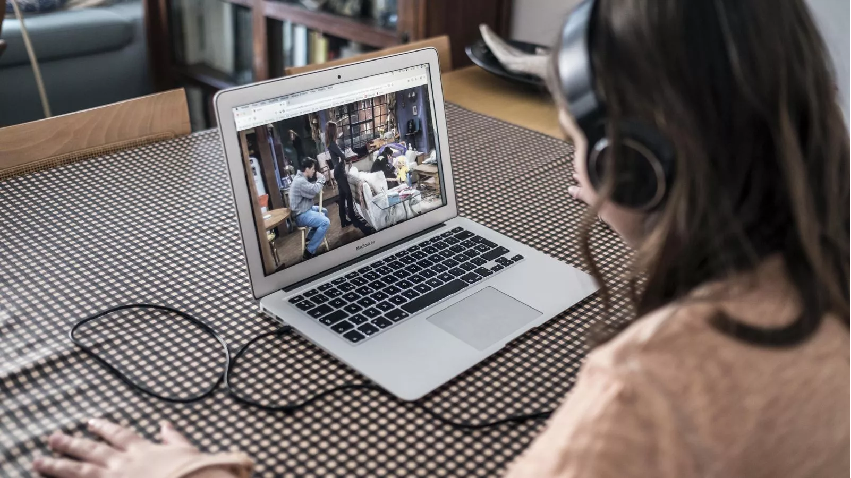
31 Aug The new audiovisual law in five keys
The audiovisual sector must assume as soon as possible the new rules introduced by the recently approved General Audiovisual Law Communication (LGCA). And learn to live with them to face the new challenges that lie ahead. We summarize, in 5 points, the most relevant modifications.
With more than a year and a half of delay in the transposition of Directive (EU) 2018/1808 on Audiovisual Communication Services and a complaint from the European Commission before the Court of Justice of the EU for the said delay, it has finally been seen the light the new General Law on Audiovisual Communication (Law 13/2022, of July 7 – LGCA). Its publication also complies with one of the actions of the Government’s Recovery, Transformation, and Resilience Plan, in the “ Spain, Europe’s Audiovisual Hub ” component.
Its processing has not been easy and, as always happens in this sector, combining the conflicting interests of traditional operators, new agents such as OTT platforms, audiovisual producers, the film community, user associations, also, political parties, has generated more than controversy. Despite an abrupt parliamentary procedure in its final phase, the law has had, as a whole. The necessary consensus throughout the different phases of its gestation. Under the protection of the community directive Without the intention of going into detail or reviewing. In the entire standard, below, the most significant modifications are summarized in eight points. And a final mention of its entry into force and its implementing regulations:
New Subjects

While the previous audiovisual law (Law 7/2010) already repealed focused mainly on free DTT (linear television). The new law also looks in detail at streaming payment platforms. And reaches exchange services of videos through platforms. Even to users of special relevance who use video sharing services through platforms (the so-called influencers ). All of the above provided that they are established in Spain according to the criteria of the LGCA. Must be registered in the new State Registry of audiovisual communication service providers. Providers of the video exchange service through the platform, and service providers of aggregation of audiovisual communication services.
In this regard, it should be remembered that the audiovisual standard is based on the country of origin principle. Enshrined in the directive, that a service provider will remain under the legal system and jurisdiction of the Member State in which it is established. This means that the regulatory changes imposed by the LGCA. Platforms that provide streaming audiovisual services will apply to those that are established in Spain (such as Movistar Plus+, Filmin, or FlixOlé, among others). But not to those that are not (such as Netflix, Amazon Prime Video, HBO, Hayu, Starzplay, or Disney+, among others). Unless they offer services specifically aimed at Spain. In which case, as an exception to the principle of the country of origin. Only certain obligations related to the advance financing of European works will apply. In addition to the contribution to the financing of the RTVE Corporation.
Protection of Minors
One of the objectives of the LGCA is to increase the protection of minors. Forcing all providers to provide information on content that may be harmful to them through age rating systems. Those programs whose rating is “not recommended for children under 18 years of age” may only be broadcast between 10:00 pm and 6:00 am
Video sharing platforms must also operate age verification systems and establish mechanisms to rate content based on age. They must also include functionality for users who upload videos to declare whether those videos contain advertising.
Accessibility For Citizens
The new LGCA expands the accessibility of content for all citizens. Extending the obligation to agents that until now were not covered: conditional access linear television audiovisual communication services; on-demand television audiovisual communication services; and sound audiovisual communication services on request.
Likewise, in order to guarantee the quality of the signed contents. It is established that they must observe the criteria of the Center for Linguistic Normalization of the Spanish Sign Language. Or of the equivalent organisms of the Autonomous Communities that have their own sign language.
As a novelty compared to the current regulations, a single point is created for claims related to accessibility by users. Which will be the National Commission of Markets and Competition (CNMC).
‘Influencers’
Another noteworthy novelty is the obligations for users of special relevance who use video sharing services through platforms. The so-called influencers (see our comment here ). The new law, taking up a recommendation made at the time by the CNMC, requires the registration of these users of special relevance in the State Registry, just like the rest of the providers of audiovisual communication services or video exchange through platforms, as well as to take certain measures aimed at protecting minors provided that: (i) significant income is obtained through this economic activity; (ii) the influencer is the editorial responsibility for the contents;(iii) the activity reaches the general public and may have an impact on it; (iv) it is intended to inform, entertain or educate through the distribution of audiovisual content; and (v), like the rest of audiovisual communications services, the activity is carried out on electronic communications networks and the user of special relevance is established in Spain.
Financing of RTVE
The LGCA also incorporates modifications to Law 8/2009. On the financing of the Spanish Radio and Television Corporation. To establish that the financing of RTVE is carried out with contributions from all the agents present in the audiovisual market. That competes for the same audience, eliminating, at last, the telecommunications operators. That is, free-to-air linear television audiovisual communication service providers (3%), paid linear television (1.5%), on-demand (1.5%), and video sharing service providers via the platform (1.5%). Regardless of whether they are established in Spain. Or in another Member State of the European Union. Provided that they direct services to Spain (the latter, obviously, in relation to the gross operating income of the audiovisual activity in Spain).
Finally, despite the spirit of protecting users that informs the new LGCA. The obligation that television stations had to report their programming three days in advance has been lost, which leaves the way open to counter-programming.
Entry into force and implementing regulations
Note that, according to the ninth final provision, some provisions of the LGCA enter into force three months after its publication (such as the measures that must be adopted by providers of video sharing services through platforms in relation to the protection of minors and commercial communications). ), or throughout 2023 (such as the obligations of advance financing of European works or those of accessibility or the new contributions to the financing of the RTVE Corporation). Finally, throughout the LGCA reference is made to the new development regulations that must be published (such as the one that refers to the new State Registry of service providers, which will establish the requirements to be considered a user of special relevance,
You may like to read WHAT IS THE IMPORTANCE OF LAW IN SOCIETY?


No Comments